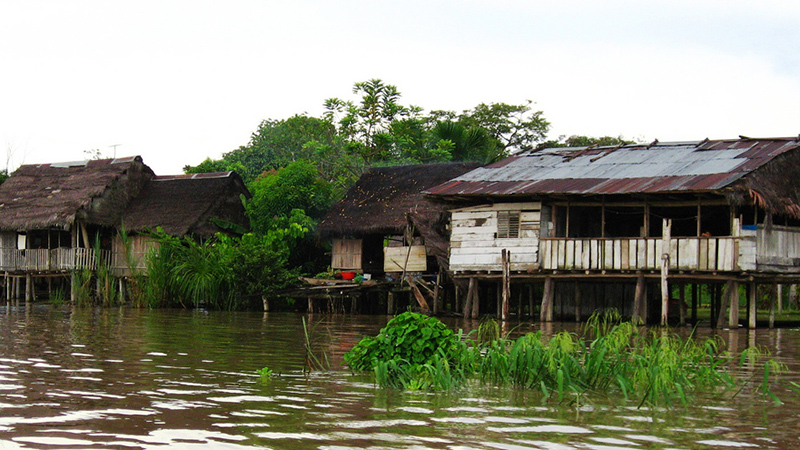The UN’s flagship Green Fund has been asked to adopt policies to ensure that the next set of projects it approves will respect the rights of tribal communities.
Philippines-based organization Tebtebba wants the GCF to develop policies that mean all initiatives conform with the UN Declaration on the Rights of Indigenous Peoples.
“The positive contribution of indigenous peoples’ traditional knowledge in adaptation should therefore be clearly acknowledged by the GCF when developing its Adaptation Planning processes, building up on current best practices and approaches,” reads a letter from Tebtebba to the GCF board.
Tasked with driving clean energy and climate resilience investments in developing countries, the $10.3 billion fund opened for business in 2015 and recently allotted $256.6 million of funds to 9 projects.
Analysis: on forests, the UN and indigenous people are worlds apart
The GCF has an existing system of safeguards that covers IP rights, called the Environmental and Social Management Standards (ESMS).
These include benchmarks for checking that the proposed activities will not harm the environment and indigenous peoples, among others.
But they are interim with GCF-specific safeguards expected by 2018 – and indigenous groups say the fund’s performance standards in particular do not offer an adequate system of safeguards
“These do not even consider the issue of traditional knowledge and the modalities and criteria according to which traditional knowledge can positively contribute to adaptation and mitigation,” said Tebtebba.
According to the UN an estimated 370 million indigenous peoples live across 70 countries from the Arctic to the South Pacific.
The World Bank has previously stated that 60 million indigenous people are “wholly dependent” on forests. Many have low levels of political participation, live in poverty and lack access to social services.
Indigenous groups have long argued for direct access to funds for climate change, many arguing that many projects aimed at preventing deforestation and building resilience are not always aligned with their interests.
Construction of dams, the promotion of biofuels and other climate mitigation strategies are frequently blamed for displacing and damaging communities, while protests have also been directed towards the UN’s REDD+ forest protection scheme.
The 2015 Paris climate deal explicitly stated in its preamble that the rights of indigenous peoples must be protected in the course of implementing mitigation and adaptation activities.
Article 7 of the Paris Agreement, on the other hand, states in particular that adaptation must be guided both by science, and if appropriate, by traditional knowledge.
The GCF has yet to issue a response to Tebtebba’s request and GCF officials did not immediately respond to requests for comment from Climate Home.
The group, however, hopes that the board will tackle their concerns in October in its meeting in Ecuador.
“We hope that in the upcoming board meeting in Ecuador this would provide us a hook to raise issues, on land tenure and indigenous rights in the safeguards,” Helen Magata from Tebtebba said.
On 25 July Simon Wilson from the GCF offered the following response:
The Green Climate Fund (the Fund) channels its resources to climate change adaptation and mitigation projects and programmes through accredited entities who will apply the Fund’s environmental and social safeguards, gender policy and fiduciary standards in the activities financed by the Fund.
The Fund has established its interim environmental and social safeguards (ESS) by adopting in May 2014 the International Finance Corporation’s Performance Standards, which includes eight performance standards, of which one is focused on indigenous peoples. The Fund aims to develop its own ESS, with inclusive multi-stakeholder participation.
The overarching framework, the environmental and social management system (ESMS), will guide how the Fund will consider and safeguard projects and programmes it funds against potential environmental and social risks and impacts. The ESMS will contain, in addition to the interim ESS, an environmental and social policy (ESP).
The Fund is in the process of developing its ESMS and ESP. In the on-going development of the ESMS and ESP, the Fund sought inputs from the public between 30 November 2015 and 15 February 2016. Input received from the Indigenous Peoples’ International Center for Policy Research (TEBTEBBA) and Education and Forest Peoples Programme, along with inputs from other submitters, are being taken into account in the ESMS development. The Fund is currently scheduled to consider the ESMS and ESP in 2016.
